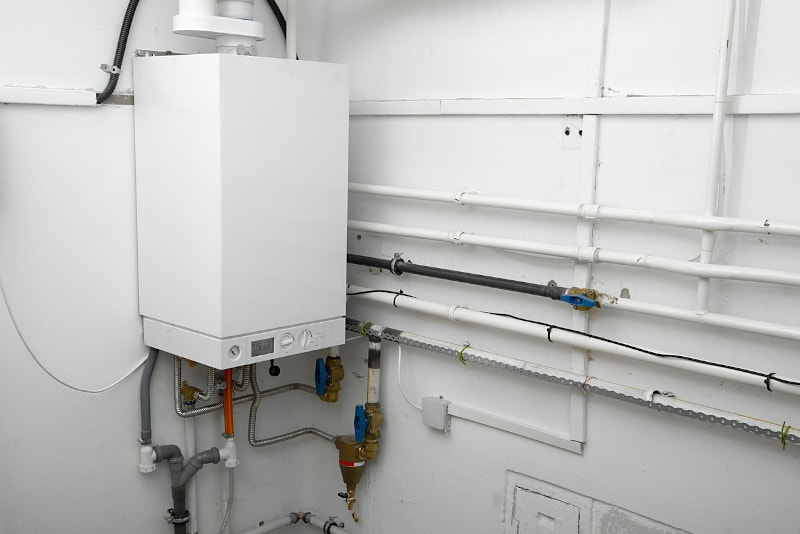Boilers are among the most robust and dependable home heating methods in Berryville, VA, with fewer moving parts compared to traditional heating systems. Even so, boilers are susceptible to mechanical issues, and in most cases, these problems start with strange noises. Read on to learn about five types of boiler noises and what causes them.
1. Rumbling from Your Boiler
If you hear your boiler producing rumbling noises, the chances are high that it’s kettling. This results from a mineral deposit build-up inside the heat exchanger and can be a severe issue. As hard water runs through your boiler, small portions of minerals get deposited on the pipe walls.
Over time, these deposits collect and hinder water flow. Consequently, water evaporates in the pipes, creating steam and exerting excess pressure on the heat exchanger. As a result, you’ll start hearing rumbling noises, which is also known as “kettling.” If you hear your boiler kettling, contact an HVAC company to take care of repairs as soon as possible.
2. Gurgling
You’ll often hear gurgling inside the pipes connected to the boiler and running throughout your house, which isn’t an issue on its own. Sometimes, however, uneven heating accompanies these strange noises. In other instances, there’ll be no heating at all, depending on your HVAC system’s design. Gurgling noises result from air bubbles in the pipes. These air bubbles block proper water flow and reduce your boiler’s ability to heat.
The best course of action is to locate a professional HVAC service technician to complete a full evaluation of your heating system. After the technician expels all air from your heating system, the gurgling noises should stop. A DIY approach should never be used, as you could potentially damage your boiler even further. Plus, you could risk voiding the manufacturer warranty.
3. Boiler Tapping
Tapping noises from your heating system can result from two potential issues. The first, as previously mentioned, is kettling, especially in your boiler’s pipes and radiator.
Alternatively, tapping noises could result from loose pieces of central heating sludge that break off and brush against the sides of pipes and radiators. Often, this happens when the mixture of metallic elements and rust gets pumped around your heating system.
4. Knocking
You’ll start hearing knocking noises if there’s an airlock in the boiler’s pump. In most cases, the knocking sounds occur when you first turn on the boiler or while running hot water. Sometimes, the knocking noises coming from your pipework, not the boiler itself. If that’s the case, try finding out where the noise is coming from and confirm that your pipework was clipped safely. Otherwise, your pipes may knock against each other or the floor beams. Any types of necessary repairs should only be handled by a qualified HVAC company.
5. Vibrating and Humming
Your boiler can produce buzzing or vibrating sounds that indicate a problem with the pump. Usually, you’ll find that part of your pump has seized up. You can confirm this by gently placing your hand on the pump, which should be warm, not hot.
If it’s hot, chances are your heater has a problem with an internal component. A faulty pump and loose bearings within your boiler could also cause the vibrating noises you hear. Let a professional HVAC technician identify the problem and provide repair or maintenance solutions. If the damage is beyond repair, your technician may recommend that you buy a new pump.
If you start hearing strange noises coming from your boiler, the chances are high that there’s an underlying problem. Waiting longer than necessary can escalate the issue and potentially result in a complete replacement. Thankfully, our seasoned service technicians have seen it all! Get in touch with Griffith Energy Services for comprehensive boiler repairs and solutions.
Image provided by iStock




